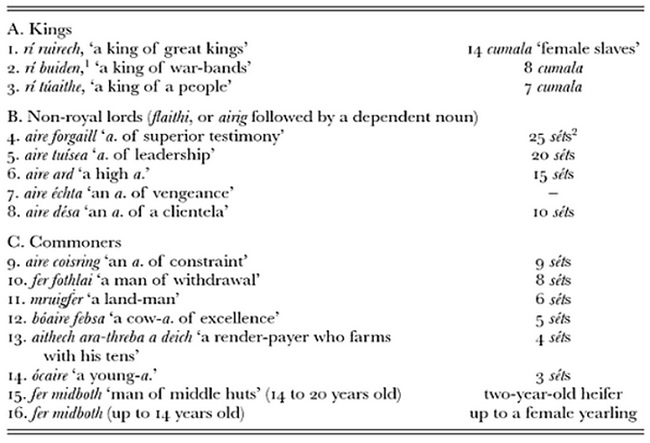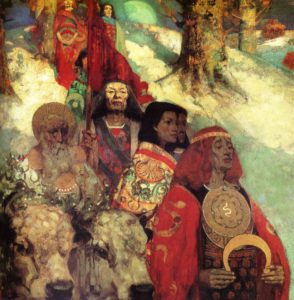The significance of status in early Irish society cannot be over-emphasised. Several important texts outline the intricate classifications which were based primarily on hereditary rights, kin-ship, property ownership, and, in some cases, merit.
The Bretha Nemed refers to a collection of manuscripts which, it has been argued; due to similarity of style and viewpoint, seem to originate from the same school of legal thought. The compilation gives us two volumes dated to have been written during the 8th century and principally concerns the nemed or ‘privileged’ classes. Authorship has been ascribed to a group of three Munster kinsmen; a judge, a bishop, and a poet.
The first of these volumes is known as the Corus Bretha Nemed or the Bretha Nemed Toisech, simply meaning: ‘the First Collection of the Judgements of the Privileged Classes’. The second volume is appropriately named the Bretha Nemed Deidenach or ‘the Last Collection of the Judgements of the Privileged Classes’. As the titles suggest, these codes referred to the higher ranks of society, the kings and chieftains, the clergy, and importantly the poets of which there is a strong focus.
Although there is a core focus on the higher-classes, the scope of the Bretha Nemed is not strictly limited to the privileged classes or poets. They also contain a series of guidelines on the laws of surety, fosterage of children, the rights of women, the duties of neighbours, in addition to a number of legal maxims.


